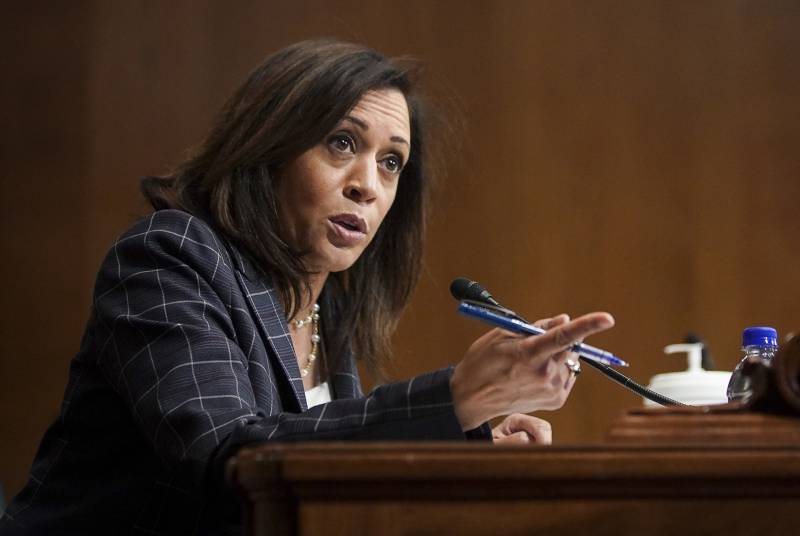California Sen. Kamala Harris will be the first Black woman and person of Indian descent to run for vice president on a major-party ticket. Many Americans got to know her when she ran for president last year.
But we here in the Bay Area have known her for a lot longer. Not just because she was born in Oakland and raised in Berkeley — but because her political career started in San Francisco.
Now she’s joined Joe Biden’s ticket as the Democratic nominee for vice president. So on this episode of The Bay podcast, we explored how Bay Area politics shaped Kamala Harris and spoke to Marisa Lagos, KQED politics correspondent.
Read on for five takeaways from our interview with Lagos. (This episode originally aired in January 2019.)
1. Her relationship to the justice system will always be a flashpoint
Kamala Harris has always had this tension within her career, which is that she is a law enforcement officer. She was a prosecutor in Alameda. She was a prosecutor in San Francisco before she became DA. You know, she threw people in prison.
On the other hand, she is an Indian American, African American woman who comes from a progressive mold of San Francisco politics, who is anti-death penalty, who has spent a lot of time talking about the need to be “smart on crime, not tough on crime.” It’s this idea that we can be both sort of progressive in the way we approach criminal justice, but also still respect law enforcement and understand that they are a necessary part of of our world.
2. Her start in San Francisco will always define her (for better or worse)
When you learn how to do politics at the local level in San Francisco, it makes you way more equipped for Sacramento — which makes you way more equipped for Washington, D.C. I don’t know that you see a lot of people leap-frog the way she has so quickly. And I think that is obviously partly due to her talent as a politician, but I think partly due to the schooling she got in San Francisco. But the flip side of that is that she is a product of, you know, “the liberal Bay Area” — the boogie man.

3. Her identity as the daughter of immigrants from Jamaica and India is already a focal point
It’s impossible to separate her personal identity from who she is as a politician. I always go back to that thing Obama said when people attacked him for not being Black enough, and he’d say, “Well, try being me and hailing a cab on Fifth Avenue.” So much of identity is about other people’s perceptions.
Of course, Kamala Harris carries with her, I think, the lessons that her parents instilled as civil rights leaders. Being an African American woman who has broken barriers basically, throughout her career, has to influence the way she approaches things.
4. Her previous approach to politics was rooted in caution
You know, Kamala Harris as a person is a really warm, likable human being. I think as a politician, she’s always been really cautious — perhaps overly cautious and a little bit inaccessible.
And I think that this followed through to her years as attorney general, which she and her supporters would argue is that as a prosecutor, you have to be really careful about what you weigh in on, and when you take positions on things, and what you say. Because if your independence is questioned, that could throw into question the cases that you’re prosecuting.
